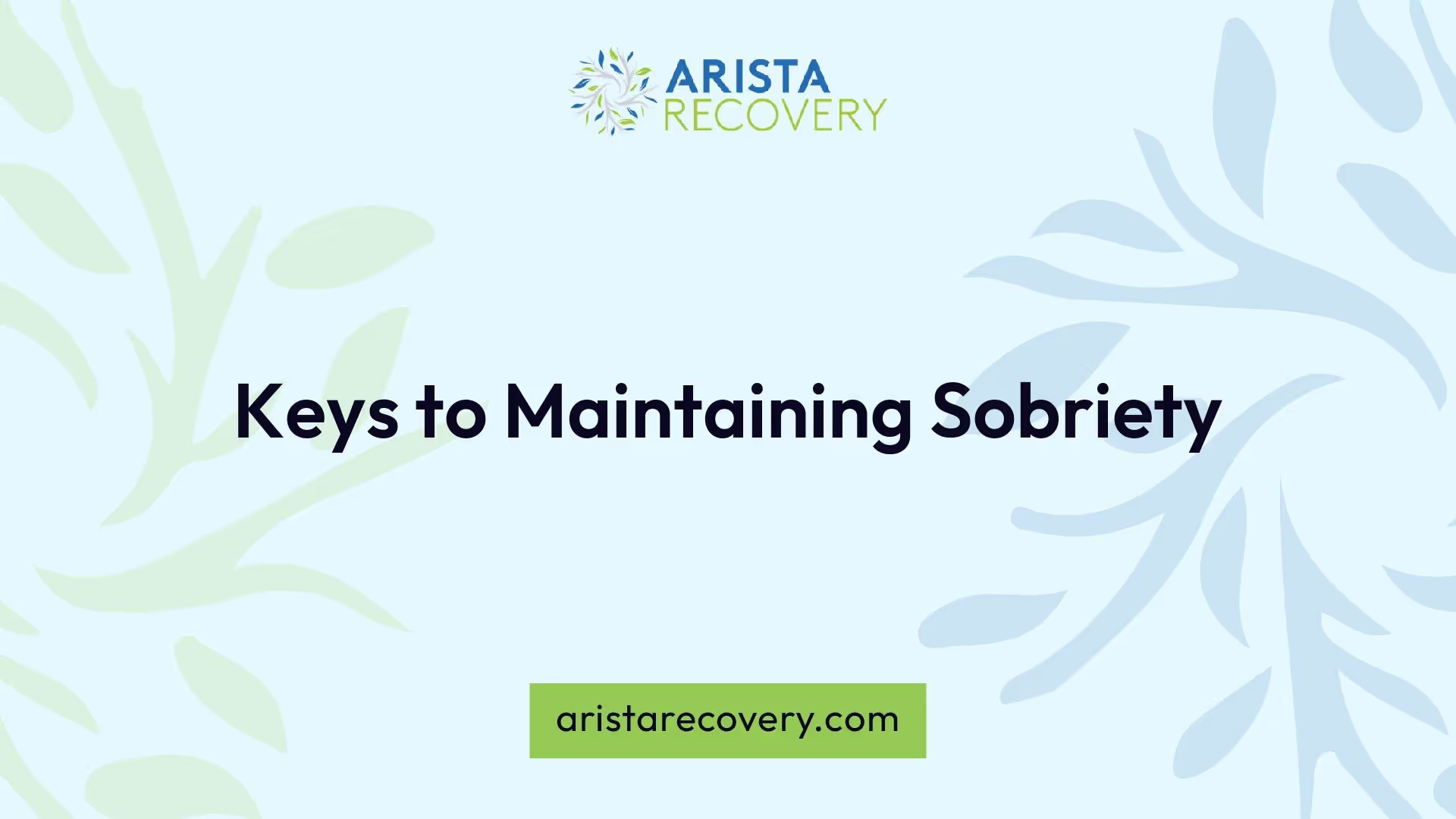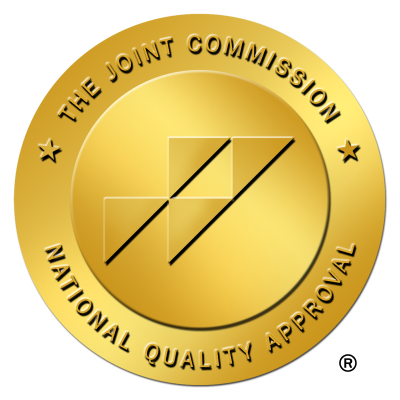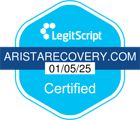Why You Should Seek the Sober Life

Benefits of Living Sober
Embarking on the journey to sobriety brings forth a multitude of benefits that extend beyond just abstaining from substance use. These benefits encompass enhancements in physical health, mental and emotional well-being, and the opportunity to repair relationships that may have been strained by addiction.

Physical Health Improvements
One of the significant advantages of adopting a sober lifestyle is the positive impact it has on physical health. By eliminating substances, individuals can mitigate the risks associated with various health issues triggered by alcohol and drug abuse. This includes reducing the likelihood of conditions such as liver disease, high blood pressure, and heart disease, ultimately promoting overall well-being and longevity [1].
Mental and Emotional Well-being
Sobriety has a profound effect on mental and emotional health, offering a pathway to improved wellness in these areas. By abstaining from substances, individuals lower their vulnerability to mental health conditions like depression and anxiety. Moreover, sobriety provides a solid foundation for addressing existing mental health concerns, allowing for a clearer and more stable state of mind [1].
Repairing Relationships
Addiction often takes a toll on personal relationships, staining them with mistrust, misunderstandings, and emotional distance. However, choosing a sober life can pave the way for healing these fractured connections. Achieving sobriety empowers individuals to mend and rebuild relationships that may have been damaged by substance abuse. This process fosters healthier, more authentic connections built on trust, communication, and mutual respect.
The transformative power of choosing sobriety transcends individual well-being, reaching into various facets of life and relationships. By embracing a sober lifestyle, individuals position themselves to experience enhanced physical health, improved mental and emotional well-being, and the opportunity to cultivate meaningful, supportive relationships based on trust and understanding.
Sobriety and Lifestyle Changes
When individuals choose to embrace a sober life, they often experience significant transformations in various aspects of their lives. Two key areas that see notable improvements with sobriety are career and financial advancements, as well as a renewed sense of purpose and personal growth.
Career and Financial Advancements
Getting sober can lead to improved career and financial prospects by helping individuals rebuild work performance, stabilize finances, and prioritize expenses effectively [1]. By maintaining sobriety, individuals are better able to focus on their professional responsibilities, leading to enhanced productivity and job satisfaction.
Moreover, sobriety often enables individuals to make more prudent financial decisions, as they are no longer allocating funds towards substances. This newfound financial stability empowers individuals to plan for their future, invest in personal growth, and pursue long-term goals.
Sense of Purpose and Personal Growth
Living a sober life can lead to profound positive transformations, both physically and mentally, by paving the way for holistic well-being and long-term happiness. Abstaining from alcohol or substances can lead to benefits such as better sleep, increased energy levels, and improved physical well-being, laying a foundation for a healthier life.
In addition to physical well-being, sobriety often ignites a sense of purpose and personal growth. Individuals who embark on the journey to sobriety often find new passions, hobbies, and interests that contribute to their overall well-being. This newfound clarity and focus allow individuals to set meaningful goals, cultivate self-awareness, and embark on a path of personal development.
By embracing a sober lifestyle, individuals not only experience improvements in their career and finances but also embark on a transformative journey of self-discovery, growth, and fulfillment. The holistic benefits of sobriety extend beyond personal achievements to encompass a renewed sense of purpose and a deeper connection to one's aspirations and values.
Keys to Maintaining Sobriety

For individuals embarking on the journey to sobriety, it is essential to understand and implement strategies that support long-term recovery. This section focuses on key elements crucial for maintaining sobriety, including avoiding risky situations, building a strong support network, and engaging with peer support groups.
Avoiding Risky Situations
Staying sober often involves making conscious decisions to steer clear of environments or scenarios that may trigger relapse. This includes avoiding people with whom one previously engaged in substance use and refraining from visiting places associated with past substance abuse activities. Taking alternate routes or finding new activities to replace previous habits can help individuals distance themselves from risky situations.
Building a Strong Support Network
One of the cornerstones of maintaining sobriety is establishing a robust support network that provides encouragement, understanding, and accountability. This network may consist of family members, close friends, therapists, and sponsors who offer guidance and reassurance during challenging times. Seeking professional help and actively involving sober individuals in social interactions can create a supportive environment conducive to sustained recovery [3].
Engaging with Peer Support Groups
Peer support groups, such as Alcoholics Anonymous or Narcotics Anonymous, play a vital role in the recovery process by offering a community of individuals facing similar challenges. These groups provide a platform for sharing experiences, receiving advice, and fostering a sense of belonging and acceptance. By participating in peer support meetings and activities, individuals in recovery can find solidarity, motivation, and ongoing encouragement to maintain their commitment to sobriety [3].
Establishing coping mechanisms, seeking professional guidance, and actively engaging with support systems are paramount in the journey toward sobriety. By incorporating these key strategies into their daily lives, individuals can navigate the complexities of maintaining sobriety with resilience and determination.
Techniques for Staying Sober
Amidst the journey towards sobriety, adopting effective techniques can play a pivotal role in maintaining a sober lifestyle. Strategies such as managing urges and distractions, engaging in meaningful activities, and prioritizing stress management and self-care can significantly support individuals in their quest to stay sober.
Managing Urges and Distractions
One of the key aspects of staying sober is learning how to manage urges and distractions that may trigger relapse. Individuals on the path to recovery should avoid risky situations by steering clear of environments and individuals associated with substance use [3]. Simple actions like taking a different route home to bypass past triggers or finding alternative activities to replace old habits can help individuals resist the temptation to revert to their previous behaviors.
To combat urges during recovery, distraction techniques can be invaluable. Staying occupied with tasks, using substitutes like chewing gum, or repeating a personal mantra to reinforce one's determination and strength can serve as effective coping mechanisms to redirect thoughts away from cravings.
Engaging in Meaningful Activities
Engaging in activities that hold personal significance is a powerful way to foster a fulfilling and sober lifestyle. Participating in endeavors that align with one's values, such as starting an exercise regimen, volunteering for a cause, or exploring new interests, not only provides a sense of purpose but also cultivates new relationships and interests that support sobriety [3]. By immersing oneself in meaningful activities, individuals can create a positive and enriching environment that bolsters their commitment to sobriety.
Stress Management and Self-care
Managing stress and prioritizing self-care are essential components of maintaining sobriety. Developing coping mechanisms to deal with stressors without resorting to substance use is crucial for long-term recovery. Individuals can adopt practices such as mindfulness meditation, yoga, or breathing exercises to alleviate stress and promote emotional well-being.
Additionally, practicing self-care routines, such as healthy eating, regular exercise, and sufficient rest, is fundamental in nurturing physical and mental health during the recovery journey. By taking care of oneself holistically, individuals can strengthen their resilience, boost their overall well-being, and fortify their commitment to a sober lifestyle.
Journey to Sobriety
Embarking on the journey to sobriety is a courageous and life-changing decision for individuals struggling with addiction. It involves several key steps, starting from the admission and seeking help phase, progressing through treatment and recovery programs, and extending to aftercare and continued support.
Admission and Seeking Help
The first step in the journey to sobriety is recognizing the need for help and reaching out for support. Admitting that addiction has taken hold and seeking assistance is a vital moment that sets the foundation for recovery. Seeking help can take various forms, including reaching out to loved ones, contacting addiction helplines, or consulting healthcare professionals for guidance and resources.
In many cases, individuals may need to enroll in a formal treatment program to address their addiction effectively. This initial step of admission and seeking help marks the beginning of a transformative process towards a sober and healthier life.
Treatment and Recovery Programs
Once the decision to seek help has been made, individuals often enter into treatment and recovery programs tailored to their specific needs. According to the National Institute on Drug Abuse, longer-term treatment programs, such as 90-day programs, are recommended to equip individuals with the necessary skills to transition into a sober life.
These programs may include detoxification, counseling, therapy sessions, group support, and educational resources to help individuals understand the root causes of their addiction and develop coping strategies for long-term recovery. Treatment and recovery programs provide a structured and supportive environment for individuals to address their addiction issues and work towards sobriety.
Aftercare and Continued Support
After completing formal treatment programs, individuals transitioning into a sober life continue to benefit from aftercare and ongoing support. Sober living homes, also known as halfway houses or transitional homes, offer a substance-free environment for individuals in early recovery to live independently and reintegrate into the community after treatment.
Furthermore, continuing care through peer support groups, counseling sessions, and individual therapy plays a crucial role in maintaining long-term sobriety. Finding meaning and value in sobriety, remaining connected to one's emotions and recovery journey, and staying committed to a substance-free future are essential aspects that empower individuals to sustain their efforts towards a fulfilling and sober life [5].
Success stories of individuals who have navigated their journey to sobriety highlight the importance of ongoing support, monitoring, and workplace requirements in maintaining sobriety and professional responsibilities. The path to sobriety is a continuous journey that requires commitment, resilience, and support from oneself and others to achieve lasting recovery and well-being.
Transitioning Through Sober Living
Navigating the journey from addiction to sobriety is a transformative process that often involves transitioning through sober living arrangements. This phase serves as a bridge between the structured environment of rehabilitation centers and the independent living required for long-term recovery. Within sober living environments, individuals are guided by specific rules, engage in structured programs, and witness inspiring success stories that reinforce their commitment to a life free of addiction.
Concept and Purpose
Sober living facilities provide residents with a supportive environment designed to facilitate their transition from addiction to independent living. These arrangements are temporary in nature, focusing on equipping individuals with the necessary skills and tools for successful reintegration into society while maintaining their sobriety. The primary purpose of sober living is to nurture personal growth, encourage healthy habits, and foster a robust support network that promotes long-term recovery.
Rules and Structured Programs
In sober living homes, residents adhere to a set of rules and guidelines that are essential for maintaining a drug and alcohol-free environment. These rules often include drug testing, attending support group meetings, participating in house chores, and observing curfews. By following these structured programs, individuals learn accountability, responsibility, and self-discipline, which are vital components of their journey towards sustained sobriety.
Success Stories and Results
Success stories from individuals who have transitioned through sober living serve as inspiring testaments to the efficacy of such programs. For instance, the story of T highlights the milestones achieved in sobriety, confronting triggers, developing healthier coping mechanisms, and building meaningful relationships. Similarly, the journey of C emphasizes the role of support and companionship in fostering successful recovery and the transition to independent living.
Through structured programs, consistent adherence to rules, and the shared experiences of success stories, individuals in sober living environments gain the necessary tools and resilience to navigate the complexities of their recovery journey. The synergy of support, personal growth, and structured programs in sober living sets the foundation for individuals to embrace sobriety with confidence and purpose.
References
[2]:
[3]:
[4]:
[5]:
[6]:
[7]:


